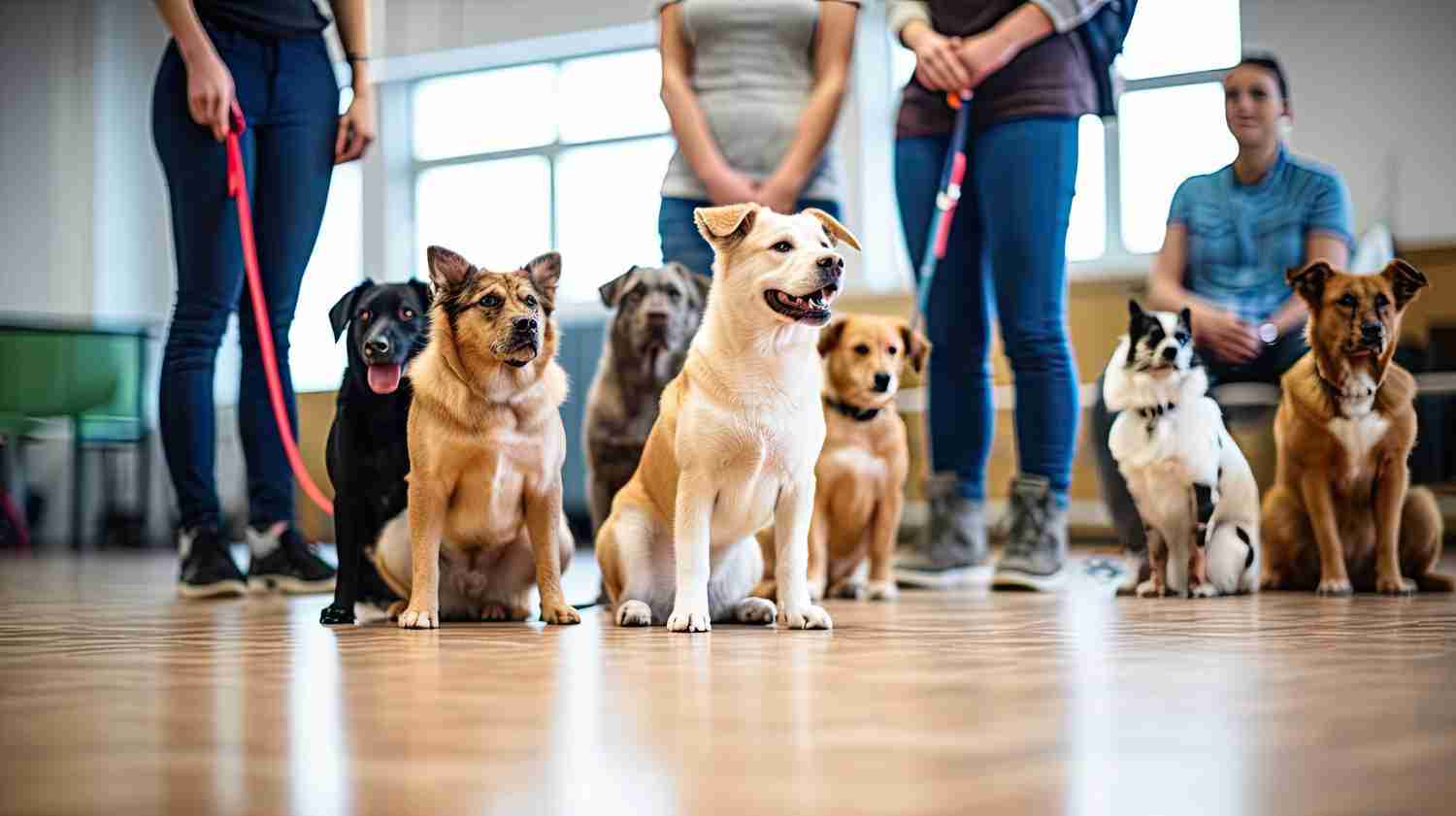
Training Tails – Ways to Reduce Dog Training Anxiety
Reducing dog training anxiety is essential for a successful and positive training experience. In addition to using CBD, there are several other strategies and techniques that can help alleviate anxiety in dogs during training:
- Positive Reinforcement: Use reward-based training methods that focus on positive reinforcement. When your dog associates training with rewards, praise, and treats, they are more likely to enjoy the process and feel less anxious.
- Consistency: Be consistent in your training methods and expectations. Dogs thrive on routine, so make sure everyone involved in the training uses the same commands and techniques. This predictability can reduce anxiety.
- Short, Regular Sessions: Keep training sessions short and frequent rather than long and exhausting. Dogs have limited attention spans, and shorter sessions help prevent frustration and anxiety.
- Obedience Classes: Enroll your dog in obedience classes led by experienced trainers. These classes provide a structured, controlled environment where dogs can learn and socialize in a safe and supervised setting.
- Desensitization: Gradually expose your dog to the training environment, commands, or situations that make them anxious. Start with less intimidating versions and progressively build up their tolerance.
- Exercise: Ensure your dog gets enough physical and mental exercise. A tired dog is less likely to be anxious during training. Regular walks, playtime, and mental stimulation can help reduce overall anxiety.
- Calming Tools: Some dogs benefit from the use of calming tools like Thundershirts, which provide gentle pressure, or pheromone diffusers, such as Adaptil, to create a calming environment.
- Stay Calm and Patient: Dogs can pick up on their owner’s emotions. If you’re stressed or impatient during training, your dog is more likely to become anxious. Stay calm, patient, and maintain a positive attitude.
- Proper Socialization: Socialize your dog from an early age to various people, animals, and environments. Well-socialized dogs are often more confident and less anxious in new situations.
- Seek Professional Help: If your dog’s anxiety is severe and persistent, or if you’re having difficulty managing it on your own, consider consulting a professional dog trainer or a veterinary behaviorist. They can provide expert guidance and tailored solutions.
- Use Distraction Techniques: When you notice signs of anxiety, try using distraction techniques like toys, treats, or games to redirect your dog’s attention away from their stressors.
- Create a Safe Space: Provide a quiet, safe space where your dog can retreat to if they become overwhelmed during training or in other situations. This could be a crate or a designated area in your home.
- Gradual Exposure to Training Tools: If your dog is anxious about training tools like clickers or collars, introduce them gradually. Let your dog become familiar with the tools without associating them with stress.
Remember that every dog is unique, and what works for one may not work for another. It’s important to observe your dog’s behavior and tailor your approach to their specific needs and sensitivities. A combination of these techniques, along with CBD if deemed appropriate by a veterinarian, can help reduce training anxiety and promote a positive learning experience for your furry friend.
For more tips on dog care and behavior, stay tuned to our blog. If you’re interested in natural solutions like CBD for your dog’s anxiety, check out our premium Happy Pet Medicinals CBD products. Your dog’s well-being is our priority!



